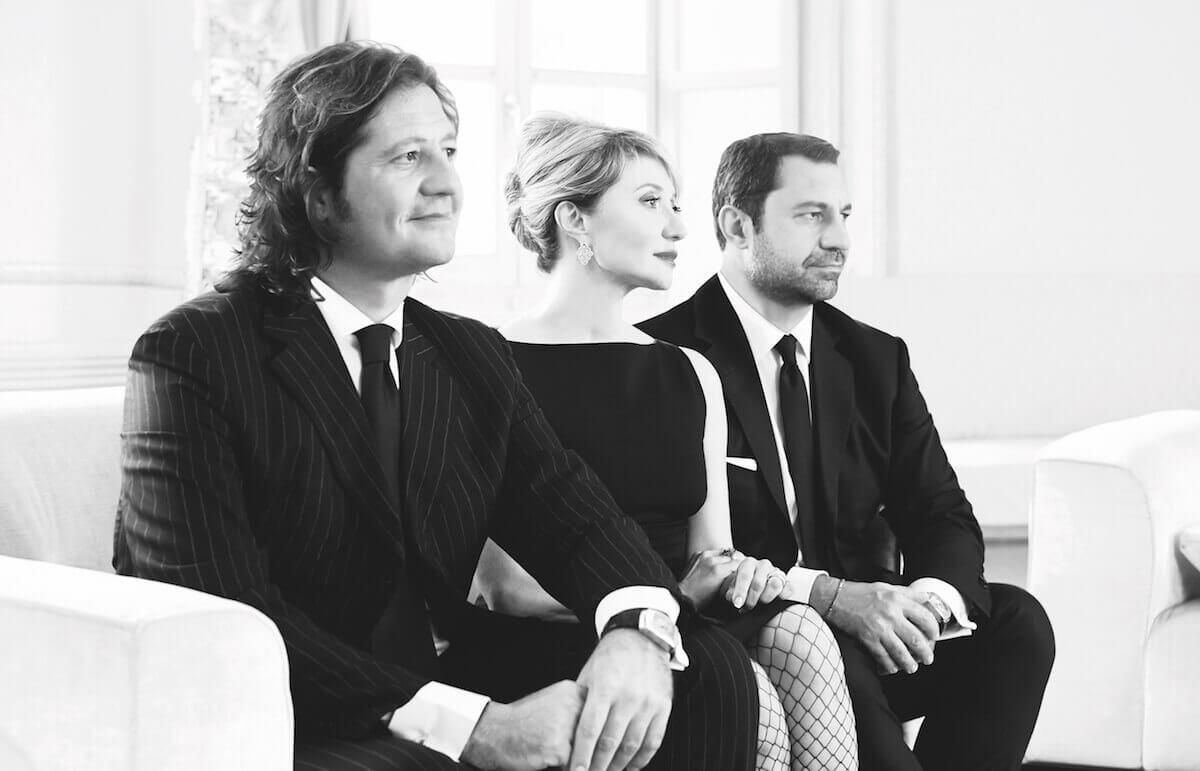Interview with Silvia Damiani, Guido Damiani, and Giorgio Damiani, Damiani, Italy
Valenza nestles in the hilly countryside of Piedmont, Italy. Known as the Italian Capital of Jewellery it is home to many star brands of the industry but few of them have reached as global a repute as Damiani. Founded in 1924, Damiani became a leading brand in jewellery and high-level luxury watches. Creativity, design, and entrepreneurship are the key elements that have driven the Damiani family along with a deep passion for an art that has passed on from founder Enrico Damiani, to his son Damiano, and now into the third generation to siblings Silvia, Guido, and Giorgio.
The fact that Damiani has remained in family hands over three generations is noteworthy in itself but the brand also stands out by its keen emphasis on original designs and excellent craftsmanship. On the floors of the Damiani manufacturing facilities in the heart of Valenza there reigns a cheerful atmosphere. Anyone you ask in Damiani’s employ speaks proudly of the brand’s culture and the family values behind it which speaks in favour of its current leadership.
Probably the most notable contribution of the three Damiani siblings leading the third generation has been their ability of taking the brand around the world and worn by celebrities of the likes of Sharone Stone and Brad Pitt. Eldest daughter, Silvia Damiani, started working for the company when she was 19 years-old. Today, she is Vice-President of the Damiani Group and is particularly involved in the Group’s external relations and image. Giorgio is also a Vice-President and is involved in the acquisition of raw materials, product development and sales relations. Guido is President, having joined the family business in 1994 and going on to take care of the sales network in Italy and marketing, introduce new strategies and make significant contributions to development.
Tharawat Magazine sat down with Guido, Silvia, and Giorgio to discuss the working together as siblings, the fine art of jewellery and the possibility of a 4th Damiani generation taking the helm one day.
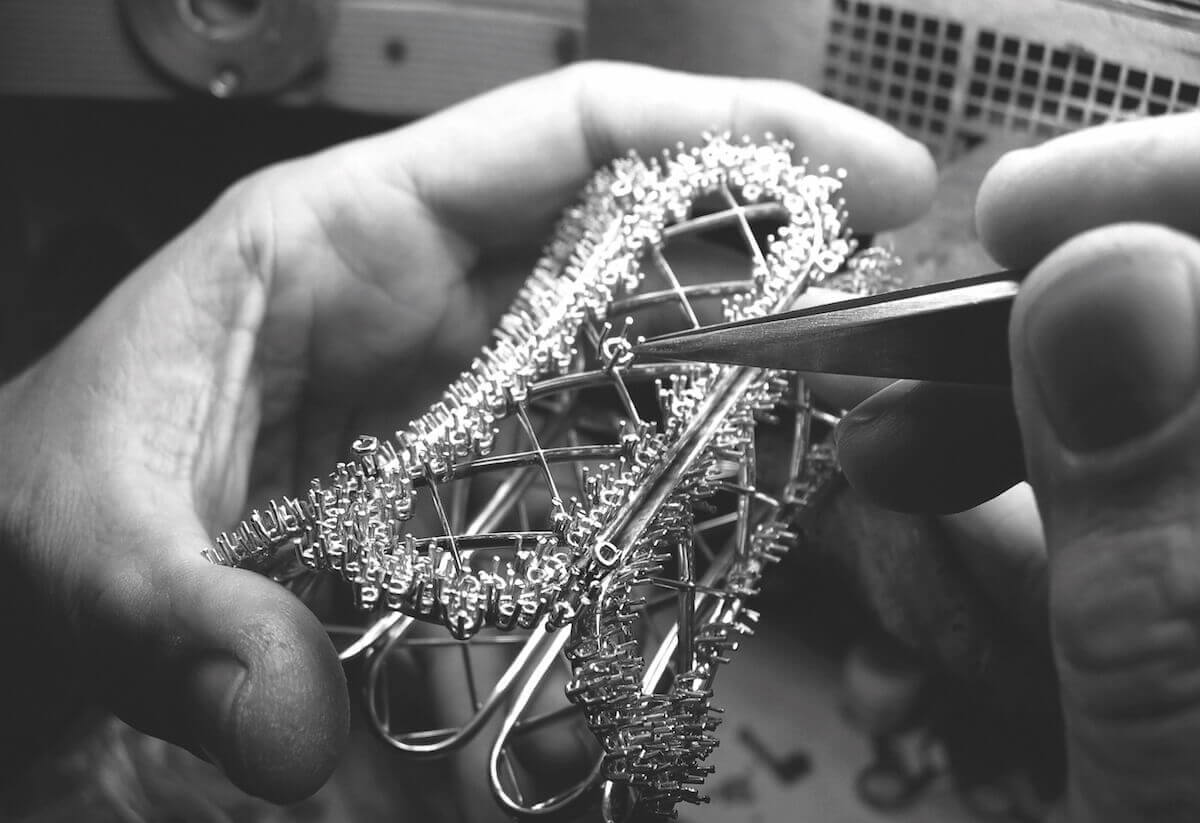
Silvia, you were the first to join the family business. What was it like when your brothers followed your example?
Silvia: For me, and I think also for my brothers, it was something really natural. It was just a matter of opening a door and each of us very instinctively choosing our places. I was very happy when Giorgio and then Guido joined. I immediately felt the company was the stronger for it.
Normally in the third generation of a family business it would be normal to see cousins involved. Can you maybe explain to us how come that in the third generation, Damiani is still run by siblings?
Guido: My father ran the company on his own. He had a sister who was not involved in the business and my father was only 19 years old when his father died so basically, he dedicated his entire adult life to the business. For us, running the company as brothers and sister is easier than if it were amongst cousins, certainly. But we were lucky because we are not only able to be true to ourselves, but also guided by the values that our father gave us. We know that a lot of other companies have been destroyed by in-fighting. But because of how we were raised, and the values that our parents passed to us, that has never been a problem for us.
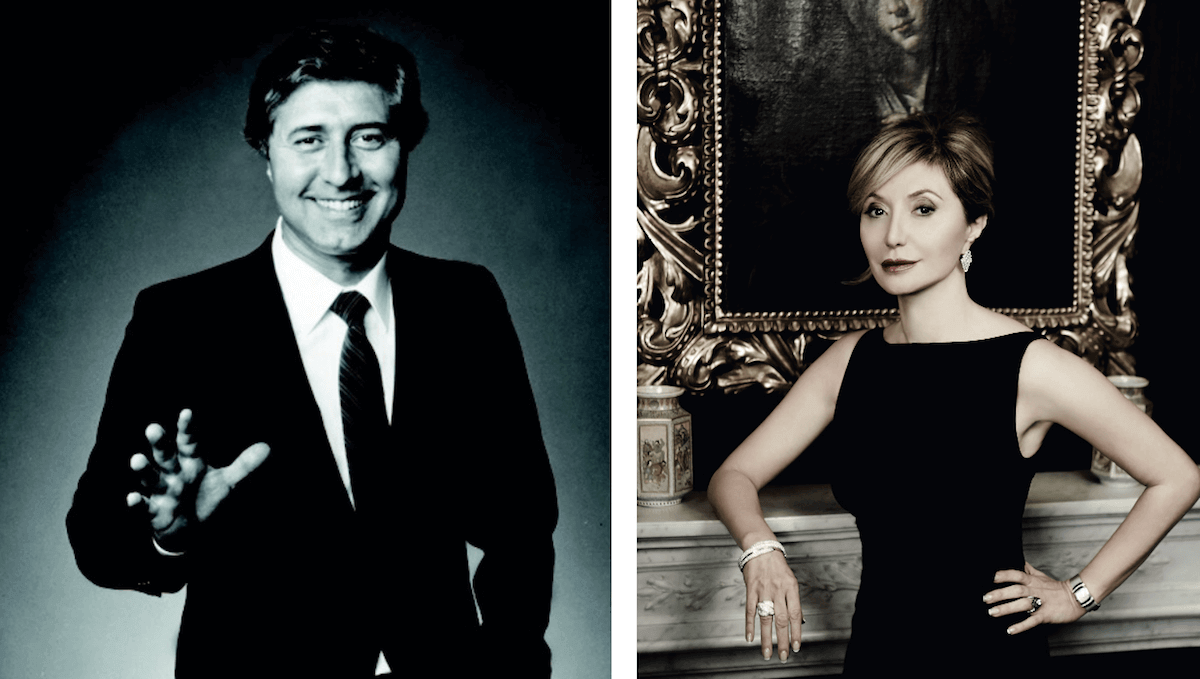
Giorgio, can you tell us more about where the Group is today and what your strategic outlook is as a third generation?
Giorgio: My father was a visionary. When he started out, there were not many jewellery brands in the world. There were retailers who were selling jewellery in their stores. But my father had the vision to create a brand that can distribute its own products in fine jewellery stores all across Italy.
When we joined, we took the brand to the next level in that we became more international. This was the big challenge at that time. Today we can say that Damiani is very a well-known international brand. But it took us 25 years to achieve this goal.
Guido: We are basically one of the very few jewellery brands in the world that was born as a manufacturer. As Giorgio said, most of the international brands were born as retailers. Our grandfather used to design and manufacture himself, so this is something very unique to our company. And the reality is, we have a stronger product culture than anyone else in the world because we were manufacturing from day one.
I believe this is something that is unique and gives us the ability to compete with all the international brands that belong to the huge groups.
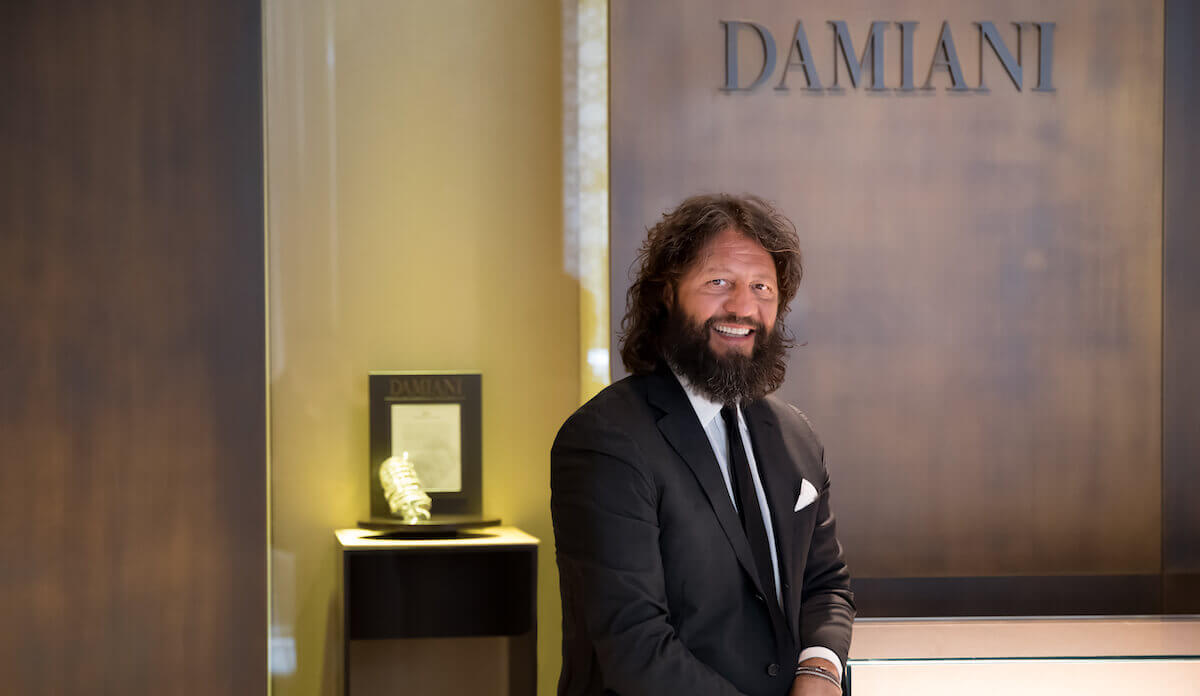
Do you feel that family ownership significantly translates into a brand advantage?
Silvia: I think it’s really one of our biggest strengths. Especially in our line of work, when you are talking to collectors and the people who are interested in high-quality jewellery, the personal touch is very important. They know that behind what they are buying, there is a family.
Most of the important clients know us personally. They know that, for instance, if Giorgio is recommending a special stone, it’s a stone he chooses himself. Our experience and know-how are not only relevant to the craftsmanship but also in our attention to the customer’s need.
Guido: The fact that we are a family business means there is a passion that is not comparable with a non-family-owned company. They are often managed only by looking towards quarterly profits, or stock options. It’s different for us; we have a mission now because we are carrying on the family tradition that was started with our grandfather and with our father.
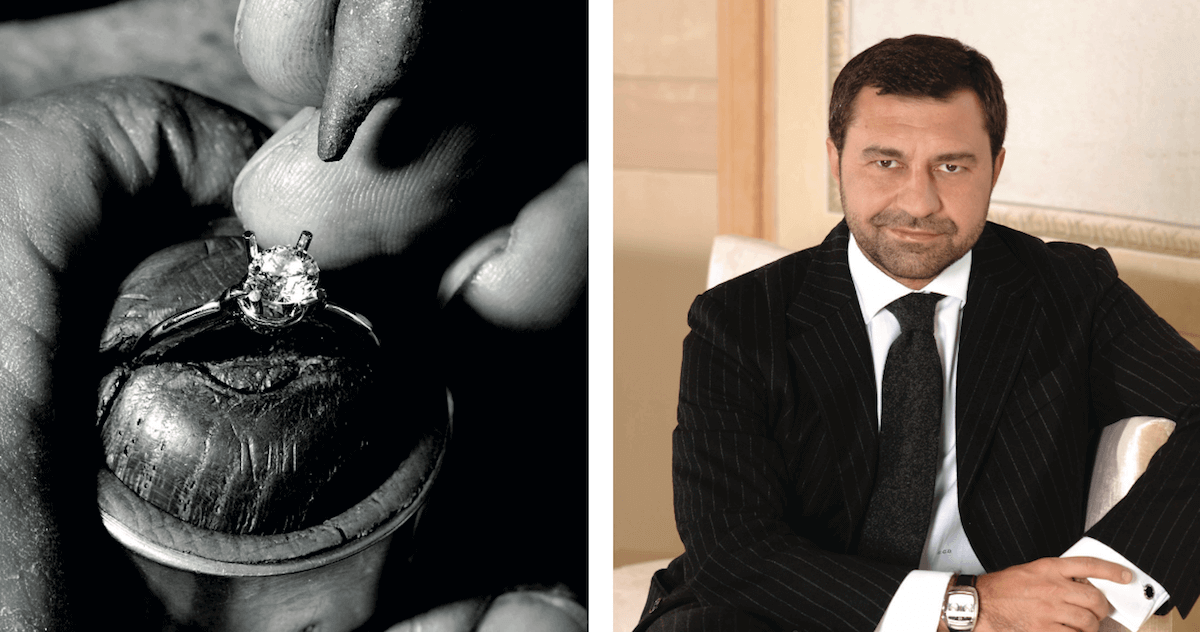
How do you as a family see the role of Damiani in a society that is rapidly digitalising?
Giorgio: For us, what we do in the factory in terms of hand-craftsmanship, is a great strength for Damiani. And probably for the next one hundred years, that will not change. Because what you see today is exactly the same procedures of manufacturing that my grandfather and great-grandfather were using. No machine can make the same jewellery with the same quality. So this will never change.
However, there is certain machinery that is complementary to the process such as the 3D printer. But this is not involved in the final finishing or the final polishing. Instead, the 3D printer is there for when you want to see the prototype.
Can you tell us whether you think you’ve seen a real difference over the past few years in how people see the function of jewellery in their lives?
Guido: We can say that jewelry today is more democratic. Hundreds of years ago, it was something that was only available for kings and queens, and reserved for very important people on very important occasions. Nowadays, our customer base is very large because people feel jewellery is another accessory, like a bag or shoes. Elegant women like to complete their look by choosing items for daily wear, evening wear or for a big event.
And the fact that women now buy jewellery for themselves is a relatively new phenomenon. It wasn’t that long ago this would be seen as unusual since it was normally men who would buy jewellery for women.
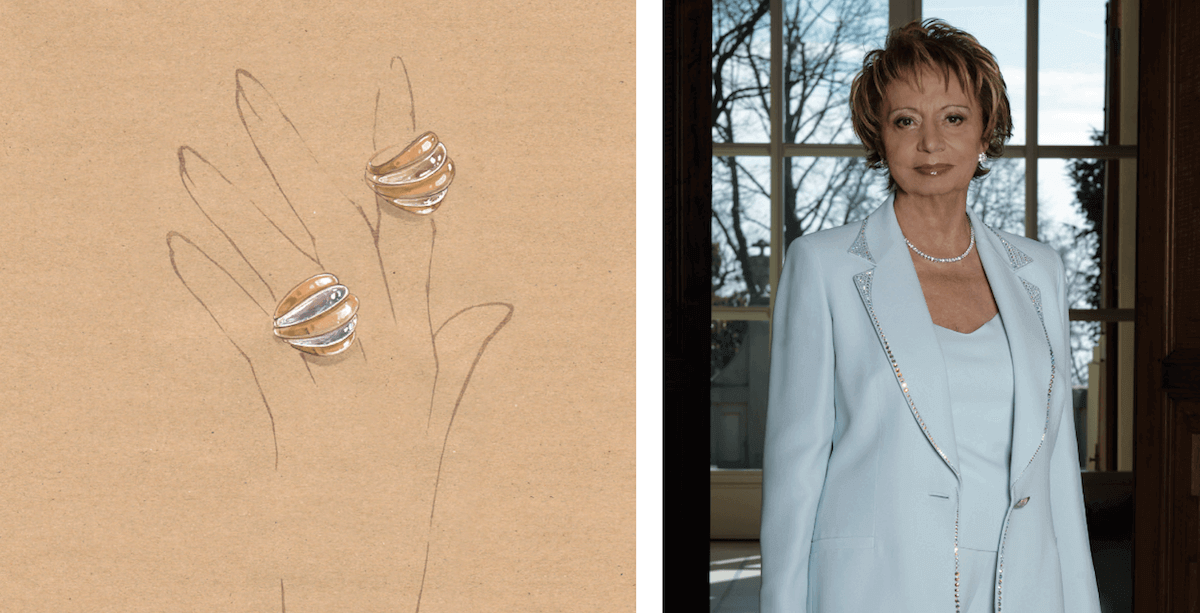
Silvia: As a woman jewellery is a precious detail that you purchase, like a gift to yourself. It makes it something that is just for you and a part of your unique identity. This is something that has greatly changed our offering. And we’re seeing more multi-use pieces these days; items women can use from the morning until the evening because they won’t change their outfit over the course of the day.
Damiani has been so successful on the global stage. What have been the greatest challenges that you’ve had to overcome to make sure this happened on your terms?
Guido: I think it stems from the fact that we run a family business with a long tradition. There is a special feeling inside the company and when people join, they quickly get the sense they are joining a family more than a business.
Silvia: Because of this, there is a much lower turnover rate here than in comparable companies. And the people who join, even in remote countries, understand where we come from and they know us personally. This means that it is much easier to transmit the DNA of our company.
Giorgio: At certain times, we may have a customer from Dubai who requires special items. A customer from Korea or Japan may request something different. The collection is going all over the map, but the craftsmanship and the quality remain the same.
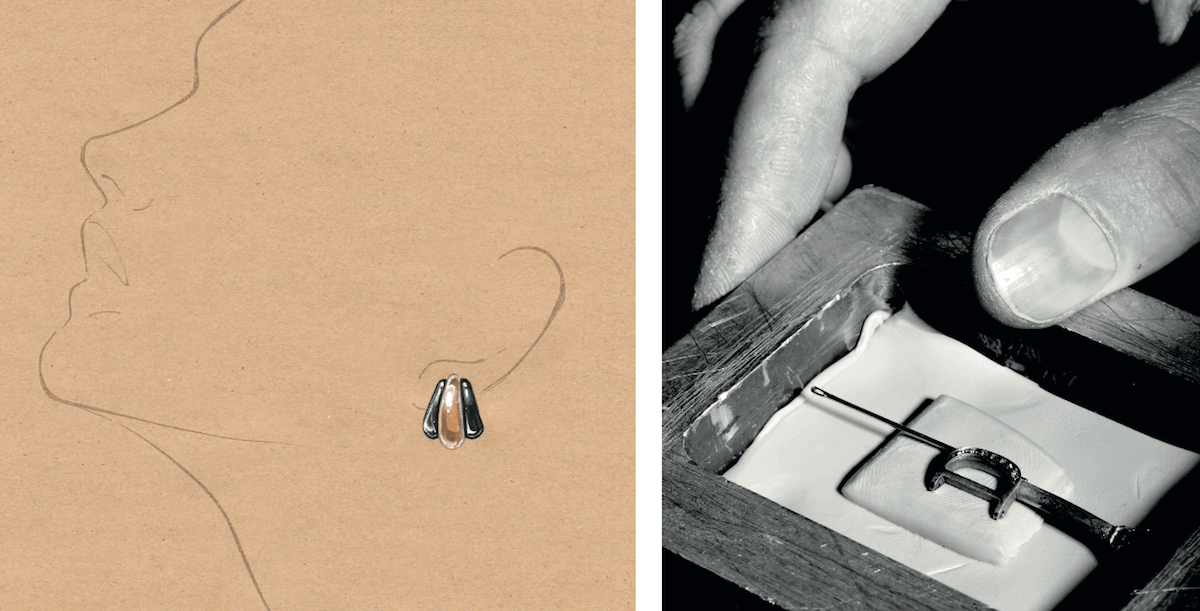
What is your dearest wish for your family business in the next few years?
Giorgio: We know those in the fourth generation are still young, but we would one day like to see them take over. We were young when we got involved and I never really thought of doing anything else because I was immediately involved in the business from the very beginning. But that was because I liked it. We had such a great example from our parents. It was something very, very natural for us to follow.
So for me, I would be very happy if they followed our path. But I think it’s very, very important to always make sure it’s something you want to do because it can be such an all-consuming aspect of your life. If you do just because you are a part of the fourth generation, or because you feel you have to, that is not a good reason to do it. If they never ask to join, I will never push them into it.
Silvia: We have important goals that we would like to see realised. To get Damiani at the forefront of everyone’s mind, and to make it even more international, is one.
And I would agree with Giorgio. Only if my son really wants to be part of the company would I suggest he do it. Also it would depend on if he would be capable of doing the job. But we don’t know, it’s something we will see in due course. They are still too young to tell.
At the same time, we also have to be loyal to the other baby, which is the company itself. What we have worked for and what has been done before us has to be preserved. We want the company to be so strong that it can continue with or without us.
Guido: We believe that we have the passion and with hard work, we can achieve a lot of our goals. And we will continue to work for that. Yes it would be lovely to see the next generation take an interest. But as Silvia said, we believe that the family is at the service of the company and not the other way around.


